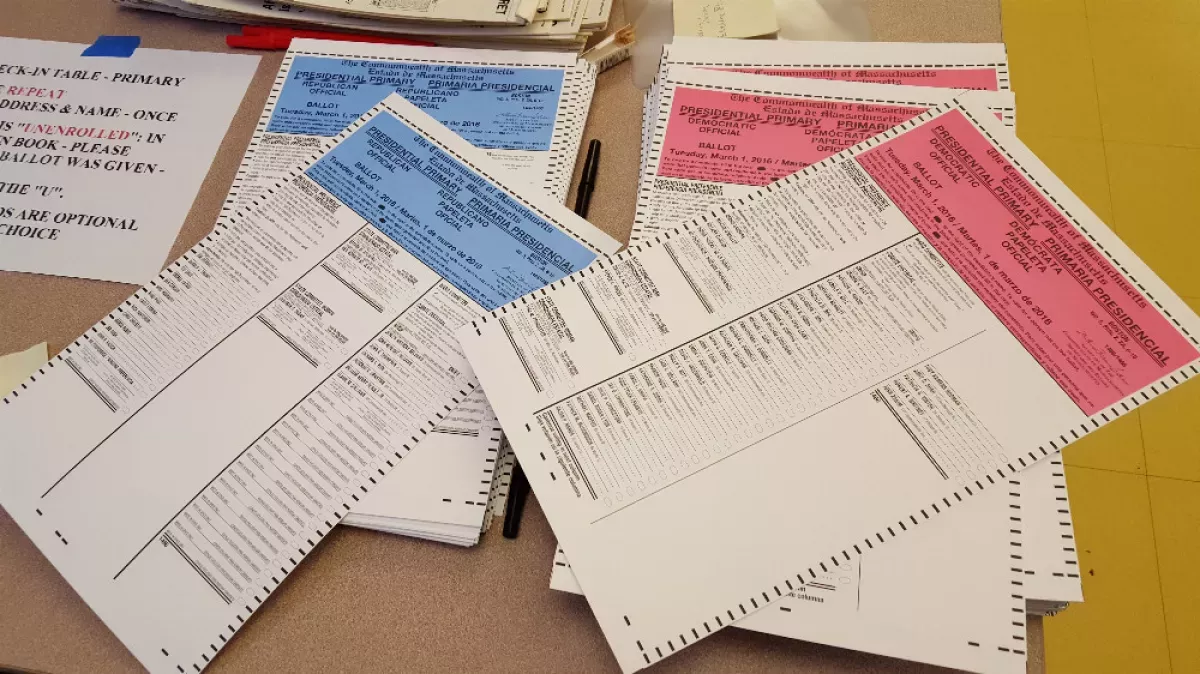Super Tuesday is a crucial event in the U.S. presidential primary election cycle, occurring in February or March. On this day, a large number of states hold primary elections and caucuses, awarding approximately one-third of all delegates needed to secure a presidential nomination. Consequently, the outcomes of Super Tuesday serve as a significant indicator of which candidates are likely to become their party's nominee for president.
1968: Chaotic Democratic National Convention
Following the chaotic 1968 Democratic National Convention in Chicago, states began trying to increase their influence in the presidential nomination process. This led to the creation of geographic blocs to encourage candidates to spend time in a region, impacting future primary systems.
1976: First Use of "Super Tuesday"
In 1976, the phrase "Super Tuesday" was first used to refer to presidential primary elections. It became an unofficial term used by journalists and political pundits to describe a day with a significant number of primary elections.
1984: Mondale Secures Delegate Majority
In 1984, Walter Mondale secured the majority of delegates from the primaries, positioning him to win the Democratic presidential nomination. Meanwhile, incumbent President Ronald Reagan secured all the delegates in the 1984 Republican Party primaries.
1984: "Super Tuesday III" Decides Delegates
In 1984, the primary season had three "Super Tuesdays", with "Super Tuesday III" determining delegates from five states: South Dakota, New Mexico, West Virginia, California, and New Jersey. The proportional nature of delegate selection meant Walter Mondale was likely to obtain enough delegates that day to win the nomination.
1988: Southern States Designate Primary Date
In 1988, Alabama, Florida, and Georgia designated the second Tuesday of March for their presidential primaries, and the Southern Legislative Conference lobbied other states to join. This effort resulted in 864 Democratic and 564 Republican delegates coming from the southern states.
1992: Clinton Wins Southern Primaries
In 1992, after losing earlier primaries, Democrat Bill Clinton won several Southern primaries on Super Tuesday. This success propelled him to win the 1992 Democratic presidential nomination and later the presidency.
1996: "Southern Tuesday" Emerges
From 1996 to 2004, most of the Southern primaries were held the week after Super Tuesday, on a day dubbed "Southern Tuesday" by news commentators.
1996: Dole Sweeps Super Tuesday
In 1996, Bob Dole swept Super Tuesday, advancing his bid for the 1996 Republican presidential nomination. Incumbent President Bill Clinton secured all the delegates in the 1996 Democratic primaries.
1999: National Association of Secretaries of State Proposal
In 1999, the National Association of Secretaries of State adopted the Rotating Regional Primary System, as one of the reform proposals of the current primary system, as a motivation for the creation of Super Tuesday.
2000: Gore and Bush Cement Nominations
In 2000, Super Tuesday took place on March 7 with sixteen states holding primaries, the largest presidential primary election day in U.S. history up to that point. Al Gore and George W. Bush cemented their nomination bids with Super Tuesday victories, and both went on to win their parties' presidential nominations.
February 3, 2004: Mini-Tuesday or Super Tuesday I
On February 3, 2004, to increase the importance of their votes, several states moved their presidential contests up. Five states held primaries and two held caucuses and the day was eventually nicknamed Mini-Tuesday or Super Tuesday I by pundits. The results of Mini-Tuesday had far-reaching implications for the Democratic primaries. The Republican primaries were uncontested as incumbent President George W. Bush was the presumptive nominee.
2004: "Southern Tuesday" Emerges
From 1996 to 2004, most of the Southern primaries were held the week after Super Tuesday, on a day dubbed "Southern Tuesday" by news commentators.
February 5, 2008: Largest "Super Tuesday" To Date
On February 5, 2008, 24 states moved to change their primary dates to create the largest "Super Tuesday" to date. It was also dubbed "Giga Tuesday", "Mega Giga Tuesday", "Tsunami Tuesday" or even "Super Duper Tuesday".
March 4, 2008: Smaller Super Tuesday
On March 4, 2008, only four states held elections on Super Tuesday, leading one pundit to comment that "Super Tuesday isn't so super."
March 6, 2012: Super Tuesday 2012
On March 6, 2012, Super Tuesday took place with 419 delegates (18.3% of the total) at stake in 10 states for the Republican primaries. The Democratic primaries were mostly uncontested as incumbent President Barack Obama was the assured nominee.
March 1, 2016: SEC Primary
On March 1, 2016, Super Tuesday in the 2016 presidential election was held. This date was also dubbed the SEC Primary, since many of the participating states were represented in the U.S. Southeastern Conference for college athletics.
March 15, 2016: Super Tuesday II / Ides of March Primaries
March 15, 2016, was dubbed Super Tuesday II, Mega Tuesday, or the Ides of March Primaries. Five states held both Democratic and Republican primaries. Republican races were significant as four used winner-takes-all voting systems, with 697 delegates at stake for Democrats and 358 for Republicans.
March 3, 2020: Super Tuesday 2020
On March 3, 2020, Super Tuesday was held with numerous states holding their presidential primaries. 1,357 delegates (34.1%) of the total pledged delegates in the Democratic primaries were allotted. California and Texas played significant roles with a large number of delegates.
March 5, 2024: Super Tuesday 2024
Super Tuesday took place on March 5, 2024. Iowa's Democratic mail-in caucus finished accepting votes. 865 Republican and 1,420 Democratic delegates were chosen in these primaries and caucuses.
Mentioned in this timeline

Barack Obama the th U S President - was the...

Bill Clinton served as the nd U S President from...

George W Bush the rd U S President - is...
California is a U S state on the Pacific Coast...

Al Gore served as the th U S Vice President...

News encompasses information about current events disseminated through various media...
Trending

3 months ago Tara Reid's drink tampering claim at Rosemont hotel investigated; no video evidence found.

29 minutes ago Luke Kennard Impresses with Lakers, Drawing Praise and Justifying Trade.

30 minutes ago Murray & Williamson's Sunday Game Status Uncertain; Murphy to Play, Ruled Out Initially
30 minutes ago Israel's missile defense faces depletion amidst war prospects and Iran's missile acceleration.

1 hour ago Horner defends Verstappen, discusses driver swaps, and Wolff's haircut mocked in F1.

1 hour ago Pelicans face Clippers: Game action photos, predictions, odds, and Kawhi Leonard's availability.
Popular

Jesse Jackson is an American civil rights activist politician and...

Hillary Diane Rodham Clinton is a prominent American politician lawyer...

XXXTentacion born Jahseh Dwayne Ricardo Onfroy was a controversial yet...

Jim Carrey is a Canadian-American actor and comedian celebrated for...

Kashyap Pramod Patel is an American lawyer who became the...

Michael Joseph Jackson the King of Pop was a highly...
